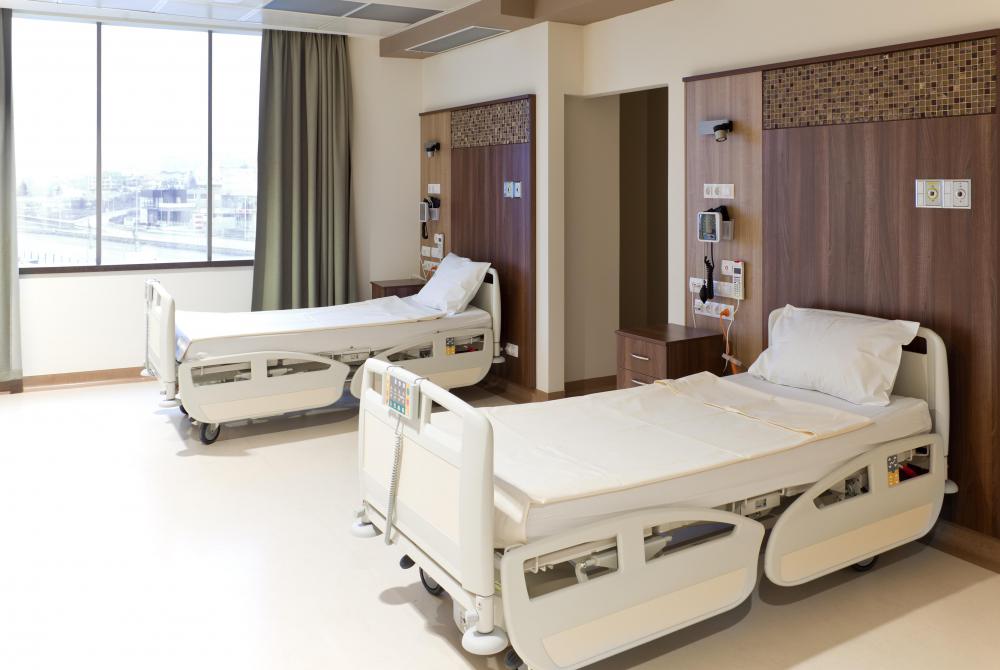At WiseGEEK, we're committed to delivering accurate, trustworthy information. Our expert-authored content is rigorously fact-checked and sourced from credible authorities. Discover how we uphold the highest standards in providing you with reliable knowledge.
What Are the Different Methods of Inpatient Billing?
In the US, hospital inpatient billing methods are dictated to a great extent by billing regulations created by the Centers for Medicare and Medicaid (CMS), previously called the Health Care Financing Administration (HCFA). This agency first attempted to standardize hospital inpatient billing by introducing uniform billing codes and regulations in 1982, and the UB-82 bill form was created. Now known as the UB-92, this one-page form has a detailed header specifying patient identifying information, diagnostic codes, dates of service and information about the hospital provider on the page header. The remainder of the form consists of subcategories of the hospital bill, broken down into required billing codes — such as "110," which is used for days of inpatient stay — and detailed line by line along alternating green and white rows. Other codes specify the cost of supplies, respiratory equipment and medications, for example.
The UB-92 form represents the final inpatient billing form submitted to Medicare, Medicaid and private health insurance companies. The collection of individual charges sorted into categories for the UB-92, however, occurs in several different ways depending upon a facility's accounting procedures and any applicable CMS or private insurance regulations. Some items are billed on a daily basis, others on a departmental frequency-of-use basis, and still others on an individual-use basis.

Inpatient billing services charged on a daily basis include inpatient hospital days and additional daily fees accrued depending upon the intensity of nursing care provided, such as in critical care units, surgical suites or hospice centers. Most medical equipment, including intravenous pumps and ventilators, is also billed on a daily basis and then included in the appropriate billing category, such as medical surgical supplies or respiratory services. Suction equipment, special colloidal hospital beds, air mattresses, orthopedic traction set-ups and telemetry monitoring are services or machinery also counted daily for inpatient billing purposes. Even if a piece of machinery is no longer in active use, it will usually continue to be billed to the patient's account until it is returned to central supply or its appropriate department for sterilization.

Equipment and services that appear in a hospital's inpatient billing charged on a per-use basis include surgeries, recovery room care, prepared surgical instrument trays, x-rays, EKGs and renal dialysis services and equipment. These types of charges may occur multiple times within a single hospitalization but are rarely scheduled on an ironclad frequency. The department providing the service — such as the operating room or the renal dialysis department — is responsible for submitting the charge.

Finally, hospital inpatient billing also includes charges for individual items billed per use. Many medical-surgical care supplies kept stocked on a given floor are billed this way. Dressings, catheters, IV fluids, IV tubing sets, and other items are stocked with a peel-off label. Nursing staff is responsible for collecting these labels and pasting them on individual patient charge cards. The pharmacy department charges medications as nursing staff documents each dose administration, usually by a computerized system.
AS FEATURED ON:
AS FEATURED ON:

















Discuss this Article
Post your comments